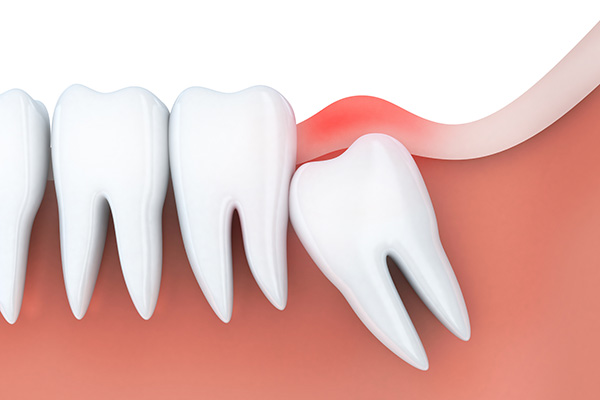

When your wisdom tooth becomes impacted and you need to seek its removal at Greater Atlanta Oral Facial Surgery, it is a major oral maxillofacial surgery that requires a dedicated level of post-operative care to heal properly. As a result, you should read and implement the following instructions after your wisdom tooth removal.
Immediately after your wisdom tooth removal, you will experience some bleeding and should keep a gauze pad affixed to the extraction site for 30 minutes. You may need to change gauze pads every half hour until a blood clot forms or the bleeding subsides.
It is common to experience swelling of the cheeks, mouth and the sides of your face following your oral maxillofacial surgery. It will likely increase in size the two to three days following your procedure. To alleviate it, apply ice and ice packs to the affected areas 36 hours after your wisdom tooth removal. If you are still experiencing swelling after three days, you may also apply heat to reduce and eliminate it.

Along with the swelling, you may have some green, blue, black or yellow discoloration around your eyes and face. Apply a hot, moist towel to help alleviate it.
Once the sedation from your anesthesia has worn off after your wisdom tooth removal, you should take medication as soon as you feel any discomfort. For mild pain, try over the counter medications including Ibuprofen and Acetaminophen. For severe pain, take the prescription given to you by your maxillofacial surgeon. This medication is going to make you feel drowsy, so you should abstain from consuming alcohol, driving, or operating heavy machinery while taking it.
The discomfort from your wisdom tooth removal should gradually subside in the days following your procedure. However, if the pain persists or worsens over time, contact your maxillofacial surgeon for further instructions.
If you have been prescribed antibiotics following your oral maxillofacial surgery, you should take the full course of medication to prevent getting an infection or other complications. Should you develop a rash or experience any other symptoms because of the medication, reach out to your maxillofacial surgeon immediately.
After your wisdom tooth removal, you should abstain from rinsing out your mouth until the day following your procedure. Your maxillofacial surgeon will advise you to perform warm salt water rinses after every meal and five to six times per day to keep the extraction area clean. When brushing, be gentle around the affected area to prevent discomfort.
Immediately following your oral maxillofacial surgery, you should only ingest liquids. However, it is critical that you do not use straws as the sucking motion can dislodge the blood clot and cause additional bleeding. Since your food intake will be limited in the first days after your procedure, you need to stay hydrated and drinks fluids regularly. When you can eat foods, choose those that are soft and high in protein to help replenish your energy.
Your maxillofacial surgeon will advise you to abstain from engaging in any vigorous exercise or activity after your procedure. They will also warn you to take it slow when going from a lying position to a standing position, as your medication may cause you to feel light-headed when attempting to get on your feet. Sit up for one minute before standing to avoid falling and injury.
It is not unusual to experience numbness in your chin, lips or tongue after your wisdom tooth removal. It is normally temporary and should subside in the days following your procedure.
You may also have an elevated temperature in the 24 to 48 hours after your oral maxillofacial surgery and should take over the counter medications to reduce it. If it persists for three days or longer, contact your maxillofacial surgeon for further instructions.
If your blood clot dislodges prematurely from the extraction site following your wisdom tooth removal, it could cause pain and discomfort in the ear known as dry socket. If this happens, reach out to your maxillofacial surgeon immediately.
After your oral maxillofacial surgery, you may experience stiffness in your jaw that will make it difficult for you to open your mouth. This should subside on its own in the days following your procedure.
Your maxillofacial surgeon will place sutures in the extraction site during your wisdom tooth removal to help minimize post-operative bleeding. In some instances, they may dislodge on their own. However, if they are still present the week following your surgery, you will need to come in for a second appointment to have them removed.
The maxillofacial surgeons at Greater Atlanta Oral Facial Surgery are dedicated to using their world-class services to alleviate the pain from your impacted wisdom tooth so you can smile with ease once again.
Contact us to schedule a consultation.